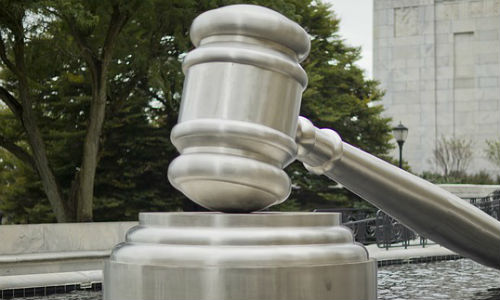One of the scariest communications a journalist can get is the notification of a lawsuit for libel. Not too long ago, a colleague was sued for statements backed up by court documents. She had done nothing wrong and yet it cost her tens of thousands of dollars, in part because she didn’t take the lawsuit seriously and didn’t hire a lawyer to file an answer. From there, things spiraled out of control. Just because someone doesn’t have a legal leg to stand on doesn’t mean it’s impossible to make your life miserable.
Most journalists are never sued, but it is a possibility, especially in business journalism, when the people and companies being reported on often have financial resources and enough savvy to become a pain in your rear. Look at Yashar Ali. He is being sued for $50 million by Fox host Eric Bolling, whom he reported had sent unsolicited sexual images to female coworkers. Bolling filed suit against Ali, but not The Huffington Post, where the piece was published. Ali felt that the focus on only him was an attempt at intimidation.
Sometimes people file a suit out of a sincere believe that they’ve been injured. Some people want to kill a damaging story. In either case, a court battle can be unpleasant and expensive. Here are some ways to protect yourself before a lawsuit appears.
Have your notes and recordings in order
Keep notes in electronic form—scanning in handwritten ones—and archive them after publication. Use folders organized by publication, date and topic. I don’t generally record interviews, as I work with a phone headset and am a fast typist. But if you do, preserve the original recording, then transfer the file (move a taped interview to a digital format) and keep it in the same folders.
The critical thing is to have a standard method of working. If you generally record interviews, for example, you need to record every interview. Inconsistency—suddenly not having a recording—allows an attorney to insinuate that you deliberately hid something or were unusually careless in this case. Either of those lines of attack leads toward a legal claim of actual malice: either the misrepresentation of facts or a reckless disregard for the truth.
Pay strict attention to how you write the story
Prevention is better than a cure. Stick to what you know and can prove and use best legal practices, as listed by the Reporters Committee for Freedom of the Press:
• Beware of biased sources.
• Use multiple sources.
• Investigate and check facts.
• Do not edit quotes in ways that materially change their meaning.
• Always try to get a response from a person or organization that is the subject of a comment.
• Correct and retract false statements when found after publication.
• Be aware of the ways you can portray someone in a false light, which is different from damaging someone’s reputation.
• Do not plagiarize.
Have a lawyer review controversial stories
No journalist or publisher can afford to do this for every story, but having a lawyer review contentious content for potential issues can be helpful. A piece I wrote for Newsweek years ago was sent to in-house counsel for a review, which they called “lawyering” the story. It took an hour for a piece that was 1,000 words long. The story retained its value, just with less potential legal danger.
Review the state’s law
Plaintiffs will generally bring suit in state court in the state in which they live or do business. Chances are it won’t be in the state where you and your publication are based. Sometimes a company will undertake what is called venue shopping, looking for a place where they have the right to bring an action and where the laws or the track records of judges might favor them. Research the laws, such as the statute of limitations on taking action and what makes a report open to legal challenge.
As part of reviewing the law, check if the state is one with an anti-SLAPP provision. SLAPP is an acronym for strategic lawsuit against public participation. Twenty-eight states, the District of Columbia and Guam have recognized that people will use the courts in an attempt to shut down unfavorable press and have passed varying degrees of protection from SLAPPs. The Digital Media Law Project has a list of the states and links to their laws.











